Most pet owners have spent at least a few minutes watching their dog twitch through a dream or their cat curled up so tightly they look like a cinnamon roll.
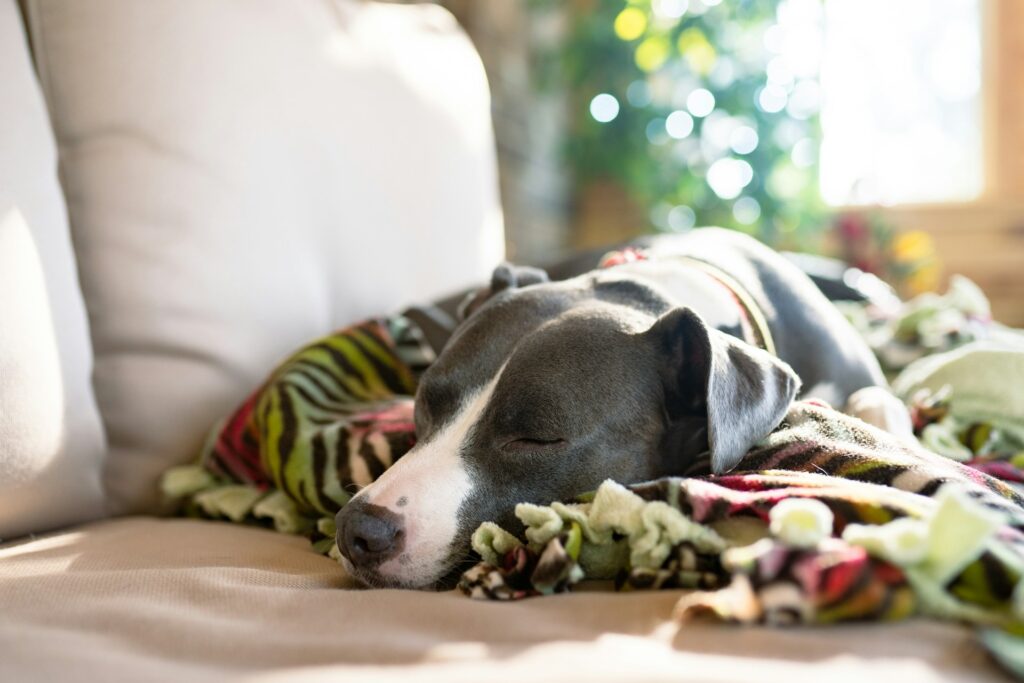
It’s cute, it’s comforting, and it can actually tell you a lot more than you might think. Your pet’s sleeping habits offer valuable clues about their health, stress levels, and overall wellbeing. From how long they sleep to the way they position themselves, these patterns can act as an early warning system when something’s not right, or a reassuring sign that all is well. Much like humans, changes in sleep often reflect underlying changes in physical or emotional health.
Whether your pet is a sprightly kitten, a mellow middle-aged dog, or a slowing senior, keeping tabs on their rest can help you support them more fully. Here’s a deeper look at what their sleeping habits may be trying to tell you.
How much they sleep matters, and what’s normal can vary.
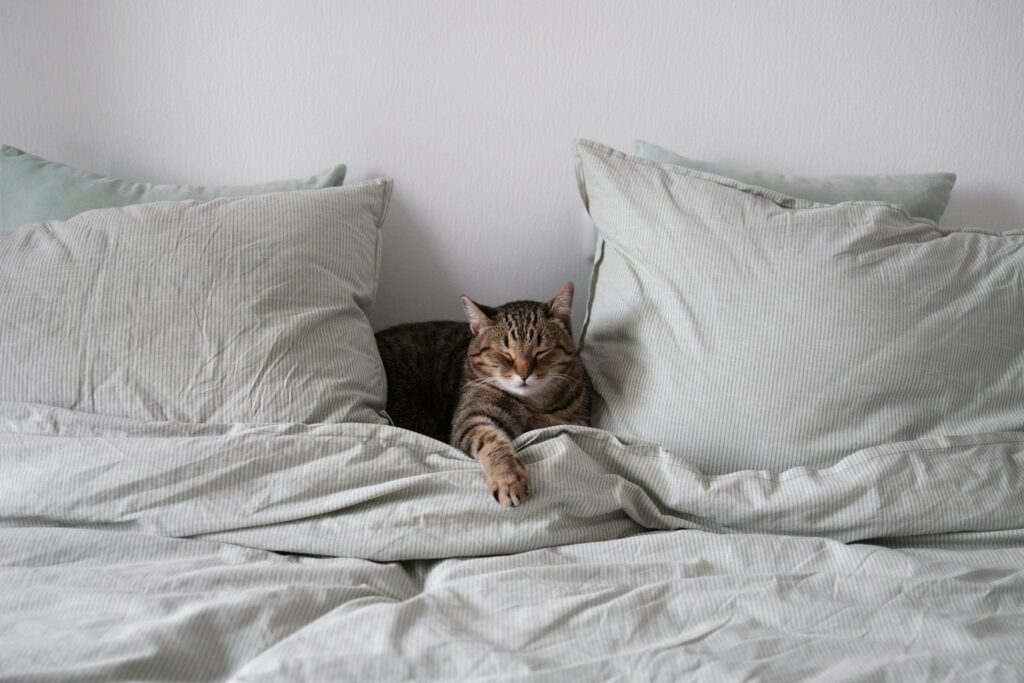
Dogs typically sleep around 12–14 hours a day, while puppies, large breeds, and older dogs might snooze even more—up to 18 or even 20 hours. Cats, as any feline parent knows, are champion sleepers, clocking in between 13–16 hours daily, with some lazy felines managing closer to 20. Sleep helps animals recharge, process new experiences, and maintain immune health.
However, if your pet suddenly starts sleeping more than usual, it could indicate an underlying issue such as an infection, thyroid problems, or chronic pain. On the other hand, a pet who’s sleeping less or appears restless may be experiencing anxiety, discomfort, or even neurological issues. Monitor not just the duration, but also the quality of their sleep. Do they seem peaceful or constantly shifting around? Changes in sleep patterns often emerge before other symptoms, so noticing them early can be incredibly helpful.
Sleep position can reveal physical comfort or discomfort.
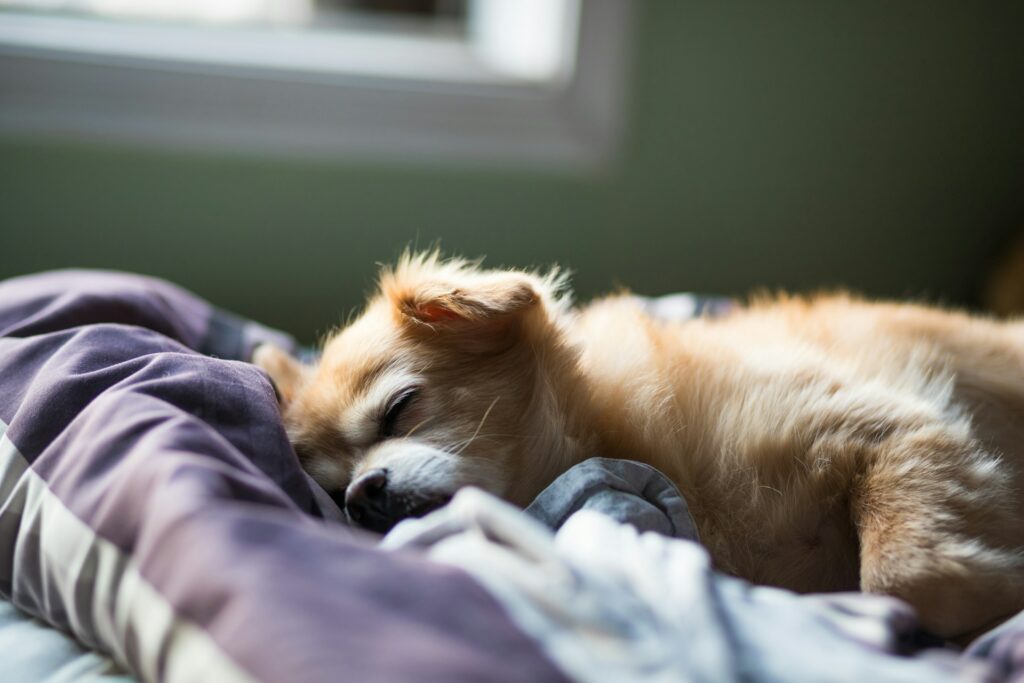
Most pets have a favourite sleeping position, and it’s not random. A dog lying sprawled on their side with legs extended is usually in a deep, restful sleep and feels safe in their environment. A cat belly-up, with paws stretched in the air, is signalling total trust and comfort.
In contrast, tightly curled sleeping, especially in warmer weather, might suggest your pet is conserving heat or feeling the need to protect their vital organs. Pets who suddenly avoid certain positions they once loved or become more rigid in their posture may be experiencing joint stiffness, muscle soreness, or even internal discomfort. Older pets, in particular, might need a supportive bed or additional cushioning to ease pressure on their joints.
Twitching and movement during sleep is usually normal and healthy.
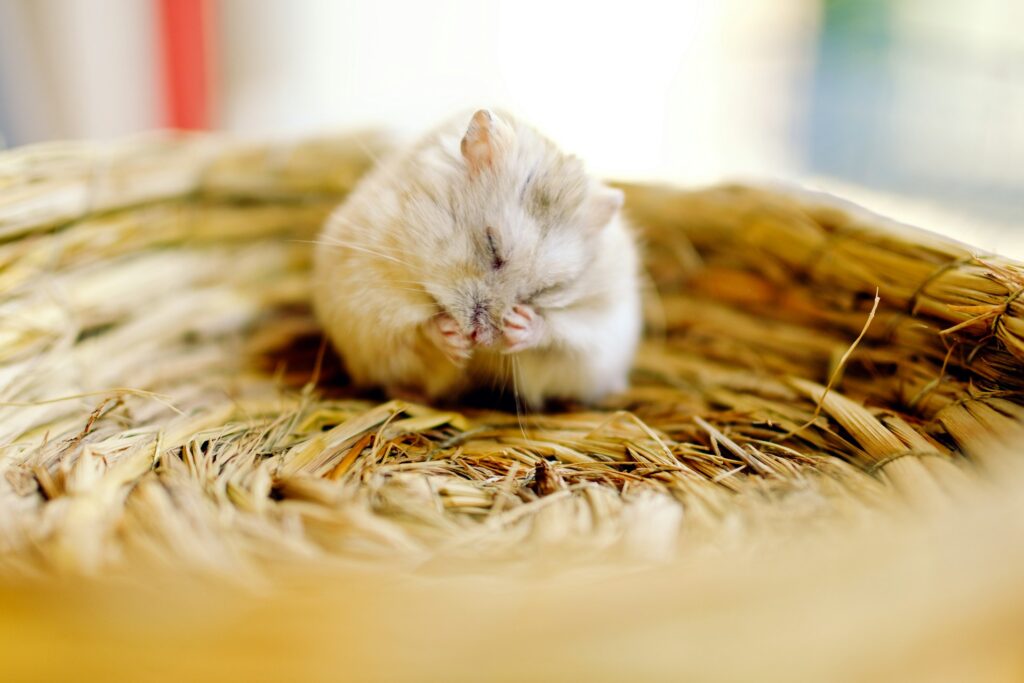
Dogs and cats, like people, go through multiple sleep stages, including REM (rapid eye movement) sleep. This is when dreams occur, and that adorable twitching, soft barking, or leg paddling often appears. It’s a sign their brain is processing information, and it’s a good indicator that they’re reaching the deeper, more restorative stages of rest.
What’s not normal is violent movement, prolonged muscle stiffness, or episodes where they seem distressed or disoriented upon waking. If your pet has tremors or spasms during sleep, especially if they wake up dazed or seem confused, it could be a seizure or another neurological concern. Keep a video to show your vet if you’re unsure, as it can help them diagnose more accurately.
Nighttime wandering or vocalising could be a sign of age-related decline.

If your senior pet begins to pace, whine, or bark at night, or seems confused about when to rest, it might be a symptom of cognitive dysfunction syndrome, often described as pet dementia. Their internal clock becomes disrupted, and they may experience anxiety, forget routines, or even forget familiar people.
You might notice them staring at walls, forgetting where the door is, or waking more frequently. Maintaining a predictable routine, using calming aids, and creating a quiet, comfortable sleep space can help. In some cases, your vet may recommend supplements or medications that support cognitive function and improve quality of life.
Snoring and laboured breathing deserve attention.
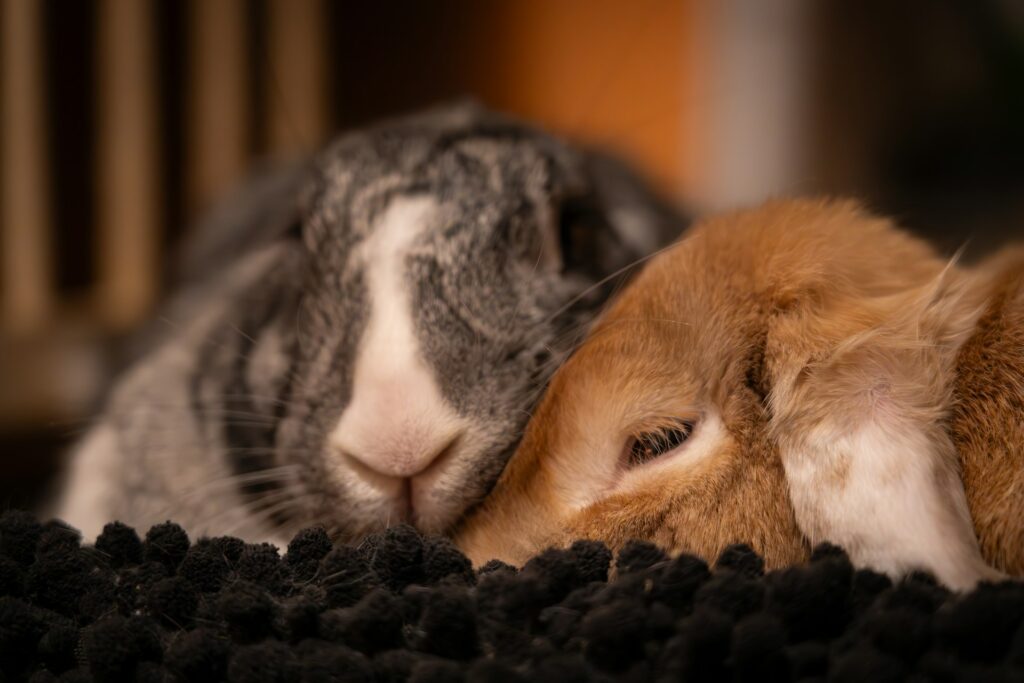
Some breeds, especially flat-faced dogs like pugs and bulldogs or Persian cats, are more prone to snoring due to the structure of their airways. A little snoring isn’t usually a concern. But if your pet begins to snore suddenly, or it becomes louder and more persistent, it might indicate weight gain, nasal congestion, respiratory infection, or even obstructive sleep apnoea.
Laboured or noisy breathing during rest, particularly in older pets or those with existing health issues, is always worth checking. Monitor their breathing rate when they’re asleep. It should be regular and not excessively fast or shallow. Anything that sounds like gasping, choking, or struggling is an emergency.
Where your pet chooses to sleep can reflect their emotional state.

Our pets don’t just pick a sleeping spot at random. Dogs who normally cuddle up to you but suddenly begin sleeping in another room might be signalling stress, illness, or discomfort. On the flip side, a usually aloof cat that starts sleeping directly on your chest could be looking for reassurance or warmth.
Changes in sleep location might also stem from new household dynamics—visitors, renovations, new pets, or other environmental changes. Watch for patterns. If they’re avoiding specific places or hiding more than usual, stress or pain may be the reason.
Frequent waking or disrupted sleep is not just annoying—it’s a clue.
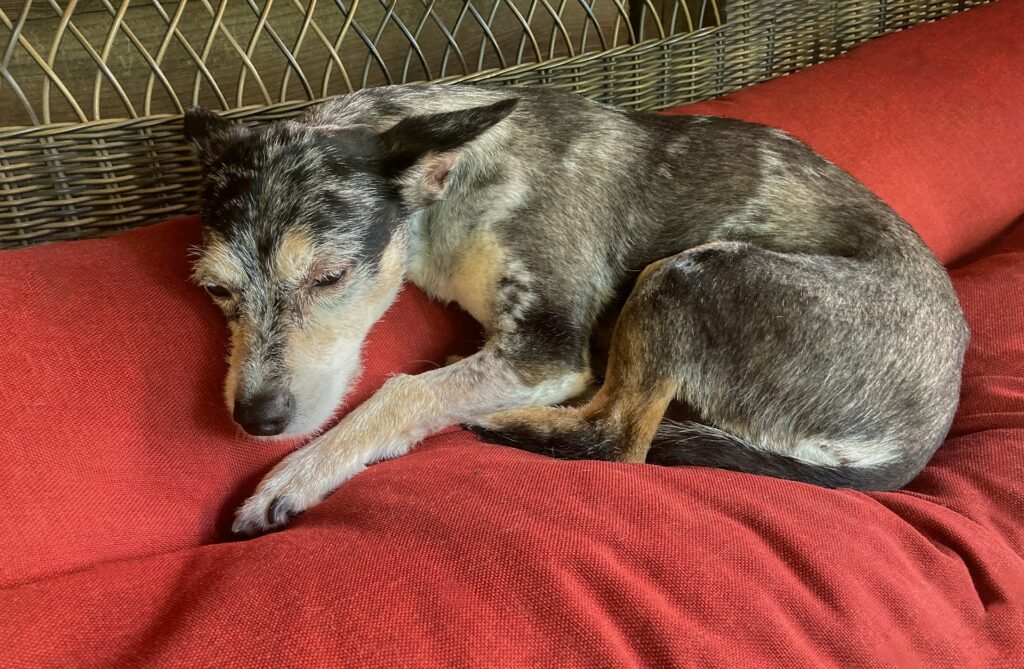
If your pet is waking repeatedly through the night, either to pace, reposition, drink water, or seek your attention, it could mean something’s bothering them physically. Pain, itchy skin, gastrointestinal upset, or even early kidney issues can interfere with their ability to sleep through the night.
Behavioural issues can also be to blame. Dogs with separation anxiety or boredom may act up at night if they haven’t had enough stimulation or structure during the day. Keeping a consistent routine and ensuring they’re mentally and physically exercised can go a long way.
Sudden changes are always worth paying attention to.
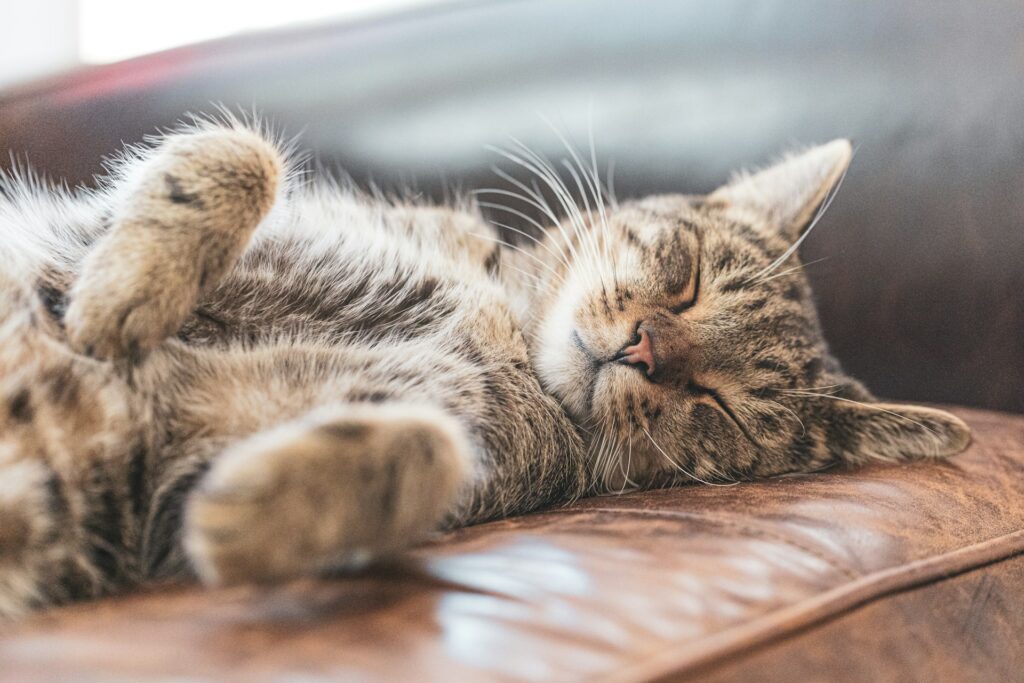
Even if your pet’s sleep behaviour isn’t obviously alarming, sudden changes should never be brushed off. An energetic dog that starts sleeping all day, or a playful cat that begins hiding under the bed and napping all afternoon—these changes don’t happen for no reason.
Keep a log for a few days. Note how long they sleep, where they sleep, and whether they seem energised when awake. Also, watch for changes in appetite, mobility, or social behaviour. These small changes together often paint a fuller picture.
A few extra things to keep in mind about pet sleep
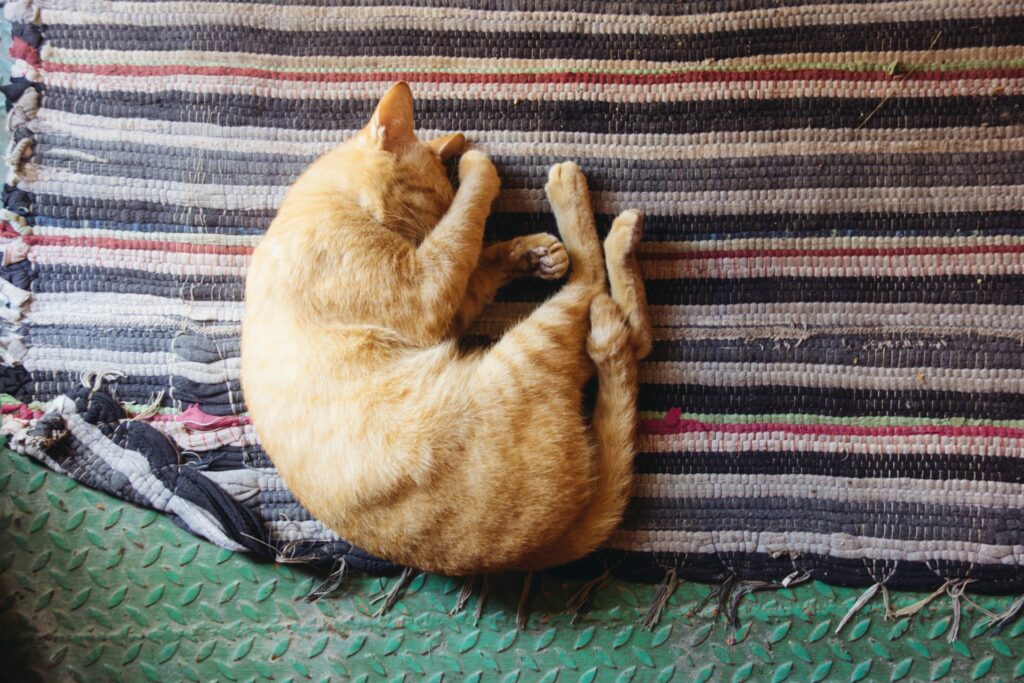
Young animals need a lot of sleep. Puppies and kittens rely on sleep to support rapid growth and brain development. Interrupted or insufficient sleep during this phase can lead to behaviour problems or weakened immune systems.
Obesity can make sleep more difficult. Heavier pets may have trouble finding a comfortable position, may snore more, and are at increased risk of sleep-related breathing issues.
Post-surgery sleep is essential. Pets recovering from injury or surgery often sleep more than usual. This is part of the healing process, but monitor for signs of pain that disrupt that rest.
Senior pets sleep differently. As pets age, they tend to sleep more, but their rest may be lighter and more fragmented. Arthritis, incontinence, and sensory decline can all interfere with restful sleep.
In short: observe, don’t obsess, but don’t ignore changes either.
You don’t need to obsess over every twitch or snore. But you do know your pet better than anyone. Trust your instincts. If something feels different or off, keep an eye on it. You’re not being overprotective—you’re being attentive.
A pet’s sleep is like a window into their wellbeing. It tells you when they’re thriving, and it whispers when something might be wrong. Paying attention to those clues doesn’t just help you spot problems early; it’s also another way to show how deeply you care. After all, nothing says “safe and loved” quite like a peaceful, sleeping pet. And helping them rest well might be one of the most loving things you can do.